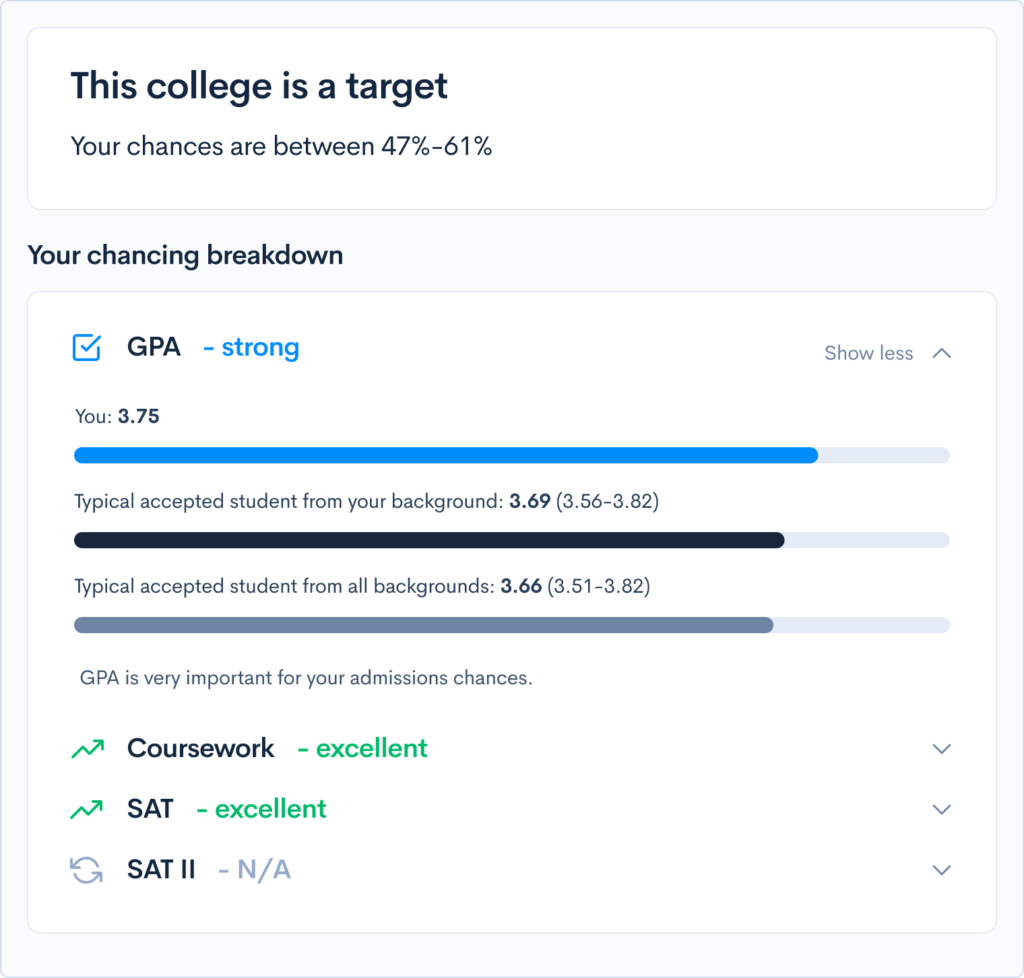How Long Does It Take to Get Your Bachelor’s Degree?
What’s Covered:
- What are the Different Types of Bachelor’s Degrees?
- How Long is the Bachelor’s Degree?
- Factors that Impact Bachelor’s Degree Timelines
- Finding the Right Bachelor’s Degree at the Right University
You might always think of a bachelor’s degree as a four-year process, but sometimes students graduate early or take a fifth year. These differing time frames are influenced by several factors such as the university the student attends, the program they are pursuing, the classes they took in high school, and more.
Here, we will go through the different types of bachelor’s degrees and the factors that contribute to a student’s graduation date. This will include ways to shorten your undergraduate experience and ways to get involved with programs where you work towards your bachelor’s and master’s degrees simultaneously.
What are the Different Types of Bachelor’s Degrees?
The term “bachelor’s degree” comes with a lot of different acronyms, each meaning something slightly different.
The most common types of bachelor’s degree include:
- Bachelor of Arts (BA) – most common undergraduate degree, usually for humanities, social sciences, languages, and communication.
- Bachelor of Science (BS) – undergraduate degree that normally combines theoretical knowledge with research, usually for natural sciences and engineering (sometimes also business)
- Bachelor of Fine Arts (BFA) – undergraduate degree for professional education in visual and performing arts
The type of bachelor’s degree awarded for many majors like economics, architecture, and business, can depend on which school you attend. Check the departmental websites of the university you are considering to see exactly which type of bachelor’s degree you would be working toward.
Schools you are considering may also have programs that award less-common bachelor’s degrees like a Bachelor of Applied Arts (BAA), Bachelor of Design (BDes), Bachelor of Engineering (BEng), Bachelor of Business Administration (BBA), or Bachelor of Architecture (BArch).
How Long is the Bachelor’s Degree?
The amount of time you spend getting your bachelor’s degree depends on the amount of time it takes you to complete the university requirements for your program.
Most bachelor’s programs at universities that run on semester systems require 120-130 credits to graduate. Schools that run on the quarter system require around 180-190 credits.
Normally, these credits take around four years to complete. That being said, it is not uncommon for things to take a little longer or for students to finish up a bit early.
Factors that Impact Bachelor’s Degree Timelines
The following factors can add or subtract years from the common four-year estimate:
Major Requirements
Calculating the length of your undergraduate education isn’t always simple math. This is because different universities have different rules. For example, many universities require that a certain number of credits be taken within your major’s department or school.
If you are trying to graduate in less than four years, it is probably important to make sure that you are using your electives to complete your department- or major-specific credits.
AP, IB, and Transfer Credits
Some schools gladly accept AP, IB, and transfer credits! Others don’t. Additionally, some schools will accept specific scores for students to ‘place out’ of requirements.
Generally speaking, prestigious private universities and colleges are less keen on accepting AP scores than public universities. At the same time, policies vary from university to university and a quick internet search for a specific university will yield helpful answers.
Taking “Extra” Courses
The most effective way to speed up your graduation is, of course, to take more courses in a shorter time period. A common method of getting requirements out of the way is enrolling in a Maymester course (sometimes these courses also serve as mini study abroad trips). Some universities also have specific awards that allow you to take extra units during the semester.
Most universities offer summer sessions. While taking courses during these sessions can add to your credits, they also have limited class offerings and may not be covered by scholarships and financial aid.
If you are going home for the summer or just want a cheaper option, you may be able to take courses at a local community college or a different university. Be careful when planning and communicate with your advisors because the courses available for transfer credit may be limited.
Changing Majors and Double Majoring
Changing your major might add to the time it takes to get your bachelor’s degree. If you are worried about “wasting time” while you figure out your major, you may want to explore potential majors early on through your general education requirements.
At the same time, it’s important to remember that changing your major may not be consequential for your graduation date at all. Depending on your situation, the courses from your original major might serve as your electives and help you get to the minimum number of credits you need to graduate (the 120-130 or 180-190 credits mentioned before). Students also often see overlap between their new major and their old major.
Lastly, double majoring takes more credits than completing a single program. While it may make it harder to graduate early (if that is your goal), it is completely feasible to graduate “on time” with a double major.
Special Programs
If you are pursuing a dual degree, your undergraduate education may take longer. Dual degrees include something like pursuing a BS in business and a BFA in cinema production at the same time.
Schools also have options to pursue your bachelor’s and master’s degrees at the same time. For example, a student might want to pursue a BS in business and an MBA in marketing at the same time. For example, at USC, these increasingly popular programs are called Progressive Degree Programs (PDPs). They lengthen students’ undergraduate careers by blending the undergrad and grad timeframes.
Finally, some universities focus on real-world career prep by offering cooperative education programs, where coursework is alternated with a full-time job in a structured way. Co-op programs extend the undergraduate experience and are common for engineering students.

Benefits of Going to College
Earning a bachelor’s degree can be an outstanding experience. It often leads to higher earnings and a higher income potential, which can afford financial security later in life.
Many students also associate undergraduate university time with a specific experience that involves creating valuable connections and developing personally.
When thinking about graduating early or extending your undergraduate career through a dual degree program, it is important to think about your goals for your bachelor’s degree.
Finding the Right Bachelor’s Degree at the Right University
Many of the factors affecting the length of a bachelor’s degree are university-specific. You may want to take into consideration whether schools you are looking at accept AP scores or IB scores, or whether they offer dual degree programs.
It is also important to consider your chances of admission to these different universities. To get a grasp on your chances of admission at various universities, we recommend using our free admissions calculator. Using your grades, extracurriculars, and more, we’ll estimate your odds of acceptance, and help you improve your candidate profile.
You can also search for best-fit schools based on your chances, and other factors that may be important to you like size, location, or majors offered. This will make it a lot easier to create a strategy for your college application process.



